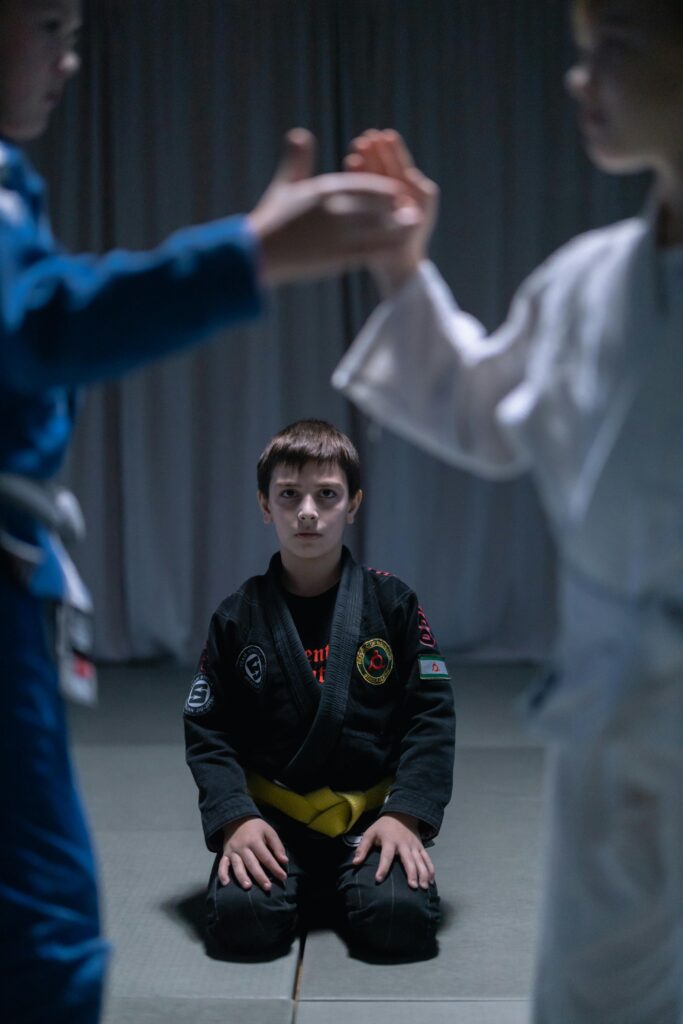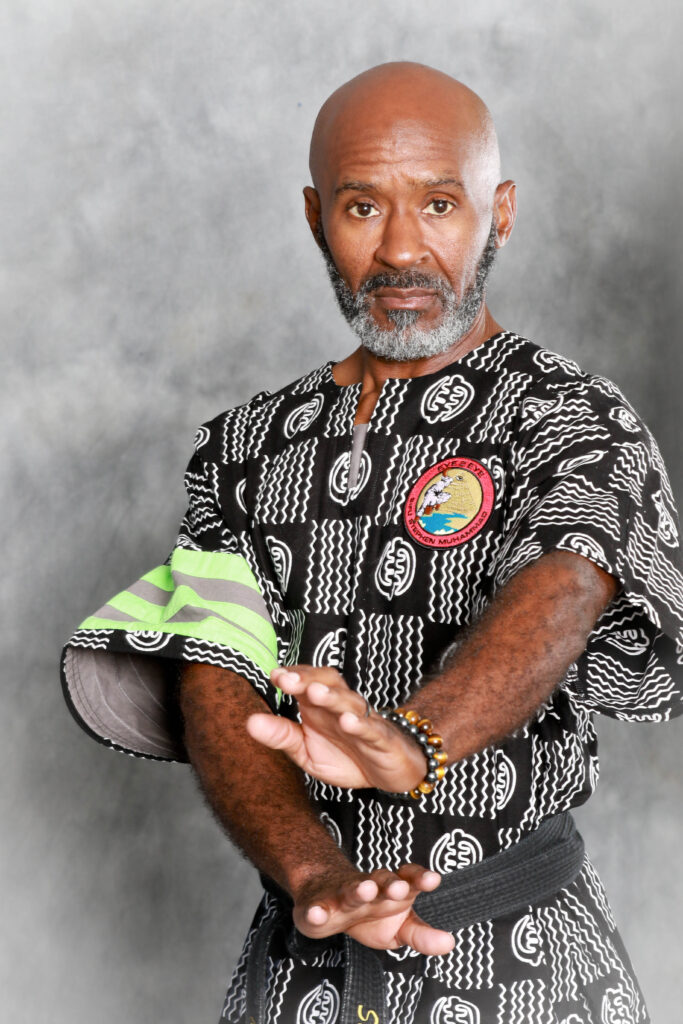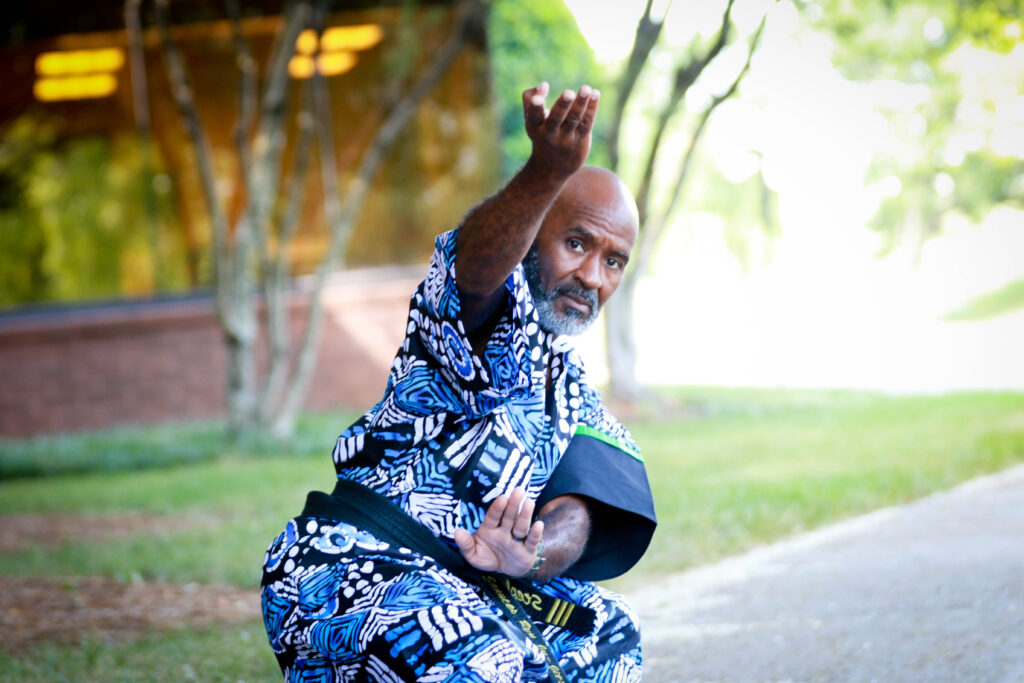Have you ever felt frustrated and helpless watching your child struggle with bullying? If so, you’re not alone.
As a martial arts instructor, I’ve seen countless parents come through our doors looking for ways to help their kids stand up to bullies—not just physically, but mentally and emotionally as well.
Martial arts have been a game-changer for many families, and I’m here to share how these lessons from the dojo can help your child overcome bullying, build self-esteem, and grow into a more confident, empowered individual.
What is Bullying and How It Affects Children
Bullying isn’t a one-size-fits-all problem. It shows up in different forms, from the classic physical confrontations to subtle verbal jabs, and now, with the rise of technology, cyberbullying. Each form leaves its own unique mark on a child’s well-being.
Different Types of Bullying Kids Face
Physical bullying is the most obvious type—pushing, hitting, or tripping another child. But that’s only the tip of the iceberg.
Verbal bullying includes name-calling, insults, and threats, while social bullying happens when kids are intentionally left out of activities or gossiped about.
Cyberbullying is the newest and arguably one of the most damaging forms, where hurtful comments or embarrassing photos are shared online, making it almost impossible for the victim to escape.
The Psychological and Physical Impact of Bullying
Bullying can shatter a child’s confidence and sense of safety, leading to anxiety, depression, and even physical ailments like headaches and stomach issues.
I’ve witnessed kids who were once outgoing and cheerful withdraw into their shells, avoiding school and social interactions.
It’s heartbreaking, but that’s where the power of martial arts comes in—helping kids build a protective layer of confidence and resilience.
The Role of Martial Arts in Addressing Bullying
When you think of martial arts, you might imagine kids breaking boards or throwing punches. But I can assure you, it’s so much more than that.
In fact, martial arts provide children with a holistic approach to handling bullying, focusing on self-respect, discipline, and self-defense in equal measure.
Building Confidence and Self-Esteem
Martial arts build confidence from the inside out. Imagine a child who starts a class timidly, unable to meet anyone’s gaze.
Over time, through structured training and small successes—like mastering a new technique or earning a higher belt—something magical happens. They start to believe in themselves.
I’ve seen kids go from shrinking violets to strong, assertive young people who walk with their heads held high.
Enhancing Physical and Mental Strength
Physical strength is important, but martial arts also sharpen mental fortitude. Practicing martial arts requires focus, perseverance, and the ability to push through challenging situations.
It’s these mental muscles that help kids manage stress, stay calm under pressure, and maintain their composure even when facing a bully.
Core Martial Arts Principles That Combat Bullying
One of the things I love about martial arts is the emphasis on core values like respect, self-control, and patience. They’re deeply ingrained principles that guide everything we do on and off the mat.
Respect and Discipline
Respect is taught from the very first class. Kids bow to their instructors and peers, not as a sign of subservience but as a demonstration of mutual respect. They learn to respect boundaries, personal space, and the dignity of others.
Discipline follows closely behind—students are encouraged to show up on time, practice regularly, and give their best effort in every class. Bullies thrive on chaos, but a disciplined child is steady and unshakable.
Self-Control and Patience
Bullying often triggers a fight-or-flight response. A child’s natural reaction might be to lash out or run away. Through martial arts, kids learn to pause, assess the situation, and respond thoughtfully.
They understand that every action has a consequence. Practicing patience and self-control helps them handle conflicts more effectively, reducing the likelihood of an escalation.
Specific Techniques and Strategies Taught in Martial Arts
So, what does a martial arts class for kids actually look like when it comes to anti-bullying? Well, it’s not just about sparring or throwing punches. We focus on teaching practical skills that help kids navigate real-life scenarios safely.
Verbal De-Escalation Strategies
One of my favorite lessons is what we call “verbal jiu-jitsu.” This isn’t about being snarky or outwitting someone with words. Instead, it’s about using calm, assertive language to defuse a tense situation.
I teach kids to use statements like, “I don’t like that,” or “Please stop, I want us to get along.” It’s amazing how much power there is in standing your ground calmly.
Physical Self-Defense Techniques
If a situation does get physical, martial arts training equips children with effective, non-aggressive ways to protect themselves.
We focus on basic blocking, breaking free from holds, and using body mechanics to escape danger. The goal is not to fight back, but to create an opportunity to get away and seek help.
Martial Arts Classes as a Safe Haven and Support System
Beyond the techniques, martial arts classes provide a unique support system. It’s more than just a place to learn—it’s a community.
Kids build friendships with their peers, find mentors in their instructors, and know that they belong to a group that values their well-being.
I’ve had parents tell me how their child’s dojo friends helped them through tough times, offering encouragement and solidarity. It’s incredible to see kids supporting each other, pushing each other to be their best, and celebrating each other’s victories.
The Importance of Parental Involvement
Parents play a huge role in a child’s martial arts journey. Your support and involvement can make all the difference in how your child applies what they learn in class to the real world.
Show interest by asking what your child learned in class, attend belt ceremonies, and reinforce the principles they’re being taught. It doesn’t have to be complicated.
Simple questions like, “What did you practice today?” or “How did you feel after class?” can open up meaningful conversations that strengthen the bond between you and your child.
Choosing the Right Martial Arts Program for Your Child
With so many options out there, how do you choose the right martial arts school?
- Qualified Instructors: Look for instructors who are not only skilled martial artists but are also trained to work with children.
- Focus on Anti-Bullying: Some schools have specific anti-bullying programs. Ask if they include verbal and emotional strategies along with physical self-defense.
- Positive, Supportive Environment: The vibe of the school matters. You want your child to feel welcome, safe, and motivated to learn.
Support Your Child’s Journey to Overcome Bullying with Eye2Eye Combat
If you’re thinking about how martial arts could help your child handle bullying more confidently and effectively, it’s time to explore Eye2Eye Combat.
At Eye2Eye, we’re all about empowering kids and giving them the tools to thrive both inside and outside the dojo.
From learning practical self-defense techniques to building a strong sense of respect and discipline, your child will gain so much more than just physical skills. They’ll develop inner strength, confidence, and a solid support system—all in a fun and engaging environment.
So, why not give them the opportunity to transform their approach to bullying and life? Take the first step today and experience the difference that Eye2Eye Combat can make for your child.
FAQs
What martial arts teaches kids?
Martial arts teach kids more than just self-defense. They learn respect, discipline, and how to set and achieve goals. Through structured classes, kids develop patience, resilience, and the ability to focus—all skills that extend beyond the dojo and into everyday life. It’s a great way to help them build confidence, become more self-aware, and handle challenging situations with a calm mind.
Is martial arts good for angry kids?
Yes, martial arts can be really beneficial for kids who struggle with anger. It provides a safe and structured environment for them to channel their energy in a positive way. I’ve seen kids learn how to control their emotions, manage frustration, and respond thoughtfully rather than impulsively. Over time, they become more in tune with their feelings and gain better self-control.
How does martial arts help kids with ADHD?
For kids with ADHD, martial arts offer a great balance of physical activity and mental focus. The structured routines and clear expectations help them stay engaged and improve their concentration. Plus, the physical movement helps release excess energy. I’ve seen it firsthand—kids with ADHD thrive in martial arts because it combines discipline and movement, making it easier for them to focus and build self-confidence.
Will martial arts help my child’s behavior?
Absolutely! Martial arts reinforce positive behaviors like respect, listening, and self-discipline. It’s not uncommon to see improvements in behavior both at home and school. Kids learn that martial arts isn’t just about what happens on the mat—it’s about carrying those values into their everyday lives. As they gain self-control and confidence, it positively impacts their behavior and interactions with others.
How does martial arts teach you discipline?
Martial arts teach discipline by encouraging consistent effort, focus, and practice. Students set goals, like earning a new belt, and work diligently towards them. They learn to push through challenges and show up regularly, even when it’s tough. Over time, these habits become part of who they are, helping them stay disciplined in other areas of their lives as well.
What is the mental benefit of martial arts?
The mental benefits of martial arts are huge. It helps reduce stress, improve focus, and build resilience. When kids learn to overcome challenges and setbacks in training, they develop a growth mindset. Plus, martial arts teach mindfulness and self-control, which can help them manage emotions better. It’s really about shaping a strong mind as much as a strong body.





